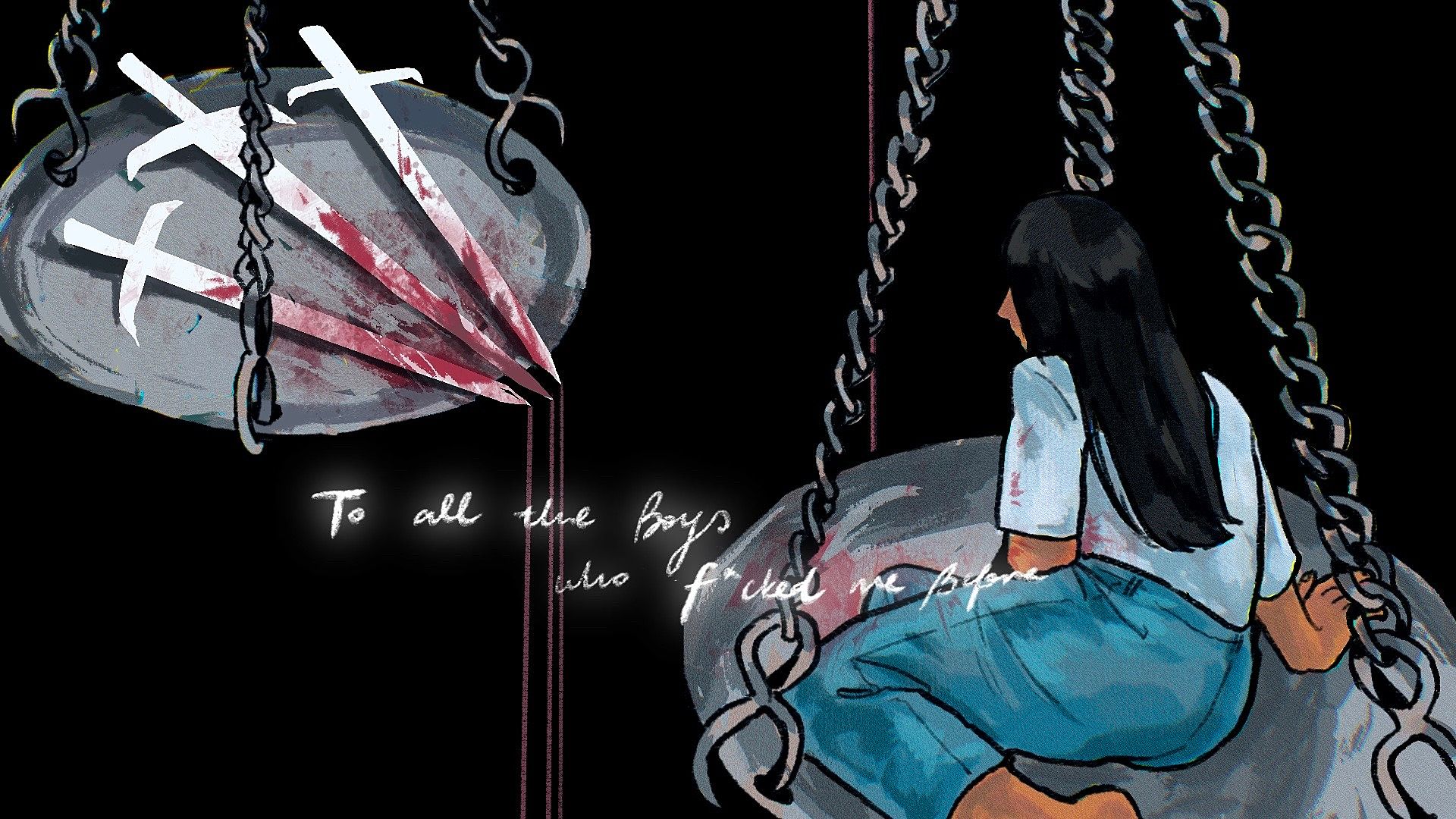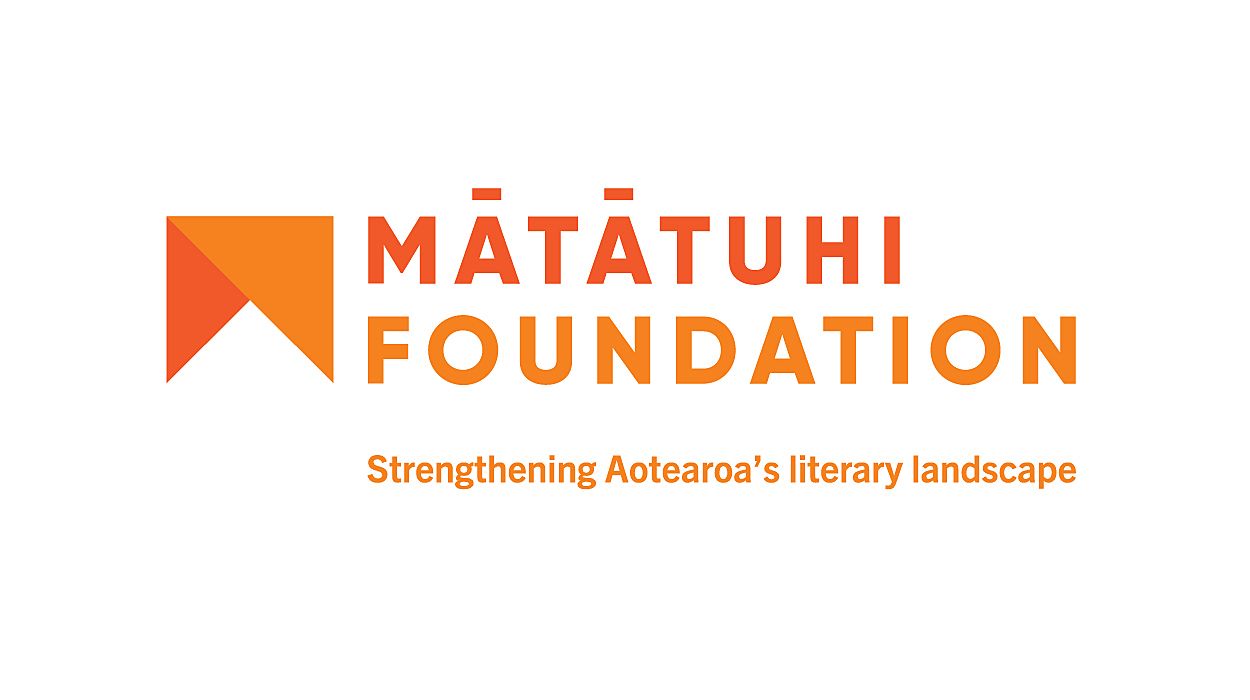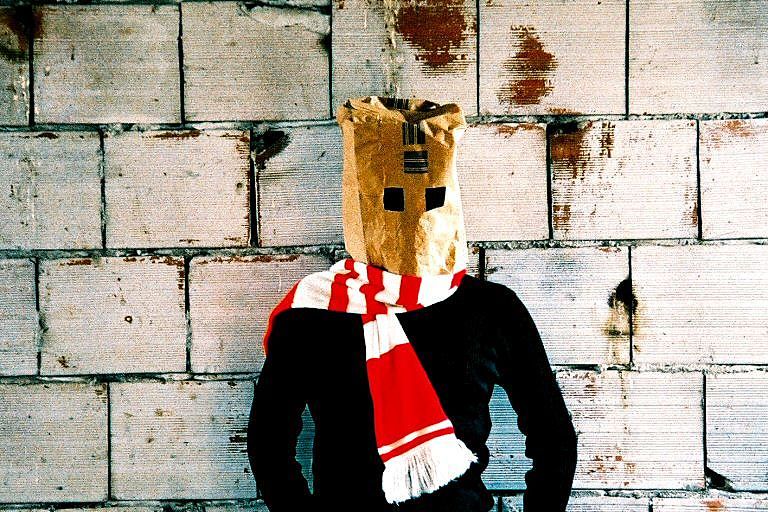To All the Boys Who F*cked Me Before
A South East Asian woman writes about the choice to escape her country of birth in the arms of a Pākēha lover, and what awaited her on the other side.
呼吸//Breathe is a series in collaboration with feminist researcher, PhD candidate, community organiser and Migrant Zine Collective founder Helen Yeung 希琳. It aims to capture the multi-faceted, complicated and often contradictory emotions behind survivorship for Asian migrant women and marginalised genders. The Chinese characters 呼 (fu1) 吸 (kap1) mean to exhale and to inhale. When combined, they make up the action of breathing, often unnoticed but vital for our existence and living. The series invites three writers to document emotions such as hope, anger, grief, healing and tenderness, and what it’s like continuing to breathe in the present and every day. 呼吸//Breathe features an editorial by Helen Yeung 希琳, and essays from Dinithi Bowatte, Nalin Samountry and an unnamed Guest Contributor. Each piece is accompanied by artworks from illustrator Liz Yu.
Please note that this series contains sensitive conversations around abuse and harm and may be upsetting for some survivors to read. This essay contains reference to sexual abuse, domestic violence and carrying an unwanted pregnancy to term.
I grew up in a polygamous family in Bangkok. My father had three wives. My mother was the second.
He said he married each woman for her respective merit. One was a perfect business partner. The other was an excellent cook. And the last was great in bed! If one wife died (which did happen), he would still have spares.
I never understood how my mum could put up with my dad. He often humiliated her by calling her fat in front of guests, after she had put in all the effort to wake up at 5am to start the food prep.
After I went through puberty, my dad started to pick on me, too. He didn't like me wearing dresses that showed my shoulders or my legs. He told me no man wants to sleep with a fat woman. Every morning, he would wake me up to go to the gym with him. He would increase the speed and the incline on my treadmill. He wanted to pay for me to get plastic surgery. He controlled how much food I ate.
When I was 16, I went on my first date with Salman. We met at university, and he was much older than I was. After the dinner, I asked him to drive me home. He smiled, placed his hand around my head and guided it onto his lap. Just go to sleep, he said, I will take care of you.
My head lay frozen on his lap the entire ride. I kept my gaze on the dark leaves of the trees and the lights flashing past. I hoped to see street signs or familiar buildings. Surely, we would arrive at my apartment soon. By the end of the night, he was handing me tissues to clean the semen off my face.
At dawn, Salman kissed my forehead. He told me to rest in his bed until he returned from work. He told me he was going to lock the door from the outside, just to be safe. I was not entirely sure what was going on. I texted my friend to tell her about the situation. She was surprised and weirded out, and said I should call the police if I didn't feel safe. I told her it was fine, he just wanted to drive me home after work, he was probably worried about me taking a cab. So I waited for him to come back to the apartment.
We ended up dating for a while. Salman mostly just came over to my place to have sex. He always left right after. I wanted to end things but was too scared to confront him. So I started smoking ciggies to make him break up with me. He hated smokers.
Our relationship ended after I slept with another man. Still, I was on a hamster wheel cycling through abusive men, with no end in sight. And I thought I was a free woman swiping my way through Tinder. I must have slept with all the farang backpackers on Khao Sarn Road. Then, I met a Pākehā guy who I thought I could spend the rest of my life with.
I followed him everywhere he wanted to travel. We went backpacking in Chiang Mai, then Pai. I flew to see him again in Hanoi. We were almost halfway through motorbiking the length of Vietnam when we crashed into a scooter. Bam! There was a bit of bone sticking out of the Pākehā's leg.
We found ourselves in Đồng Hới hospital. The nurses and staff spoke mostly in Vietnamese. The Pākehā was frustrated they did not speak English. Then his phone was stolen. He started yelling and screaming racist insults.
This should have been a big red flag. But I thought his anger was due to the pain he was in. He would be back to his normal self once he got better. Besides, he had no one else but me.
Because I wanted to escape from my family, I agreed to accompany him back to his home in Aotearoa. I never expected to get pregnant in my early 20s, in a foreign country, to a man I barely knew.
He was excited to be a father, but then the reality of a newborn baby hit hard. He punched the walls, smashed the outdoor furniture, as our baby cried day and night. I told him I didn't like him destroying the house. He said I was being dramatic, that was just how he coped with his anger. And at least he wasn't hitting me. He told me to be grateful that I was living under his roof (we were living at his dad's house rent-free) and that he paid for everything.
He said I was being dramatic, that was just how he coped with his anger. And at least he wasn't hitting me.
It was true, I was financially reliant on my partner. I felt that I could not provide for my kid if I were to leave him. I was only on a temporary visa, sponsored by him. I would not have been able to get a job or be on the benefit. I felt I had no choice but to stay with him.
Sometimes he felt sorry after being violent. He said he never meant to be such a monster to me. He just had unresolved issues from seeing his mum die horribly from cancer when he was just a teenager. I felt sad for him. I told him I understood.
My favourite writer and poet, Jenny Zhang, wrote an essay, ‘Empathy, in Excess’,about an abusive relationship she was in. I particularly resonated with this paragraph:
"I felt that I was being a good person by extending empathy to him. I wanted to think of him as helpless rather than malicious. Mentally ill and untreated, rather than intentionally, calculatingly unkind and cruel. This way of thinking also helped me to see myself as less of a victim and more of a magnanimous soul capable of loving and forgiving anyone."
As much as I loved him, I felt like I was walking on eggshells around him. To cope with the stress of our relationship, I started drinking. My partner was an alcoholic, and I mirrored his coping mechanism. I would have sips throughout the day and kept a bottle of wine by my bed.
After a few years, I found myself pregnant again. He wanted me to have an abortion because of our financial situation. I couldn't. He grew even more frustrated, shouted at me, slammed doors, clenched his fists, punched and kicked more walls. He said he felt suicidal. He accused me of getting pregnant on purpose.
I did want an abortion at first, but it was a lengthy process that included mandatory ultrasound scans. The radiologist jokingly said this must not have been in my 2020 planner. No shit. I saw the fetus move about on the scan. I felt uneasy. This would have been easier if I didn't have to look at it, if I could have had the abortion weeks ago when I first found out.
I needed someone in my family to talk to so I called my older cousin, who has children of her own, thinking she would understand me. I didn't expect her to tell me it was wrong to murder an unborn child.
Buddha does not allow it, she said.
I tried twice to go through with the abortion, but I backed out. My mother called me when I was in the clinic. My cousin had told her everything. She said to come back to Bangkok so she could help me with the baby. Killing the unborn child is not the answer, it would bring bad karma on the whole family. I didn’t believe in religious patriarchal bullshit but I didn’t want my mum to be ashamed of me.
I stayed in Aotearoa and had my second child. As expected, my partner could not cope with the baby wailing through the night. He said he wanted to kill the baby, that it was a maggot I should have aborted. I knew I had to take the kids and leave him. I stayed at a friend’s, then a women's refuge and a bunch of motels doing emergency accommodation.
When we went to the women's refuge, my kid told me he wanted to go home. I felt really bad. The room at the refuge was the size of a closet, with a single bed. I caved in and called his dad to come take him home. Eventually, I let the Pākehā come back into my life on the condition that he would attend an anger-management course.
Though he did go, he never took it seriously. He said he felt funny being there because he wasn't as bad as the other men there who beat up their wives. He thought the anger-management techniques were useless and silly. The reason he kept attending was he found it entertaining to listen to the other men’s stories.
He said he felt funny being there because he wasn't as bad as the other men there who beat up their wives.
Even now, he is juvenile and unpredictable. He loses it over small things, like when our two-year-old ruined the carpet with coffee powder. He yelled at the baby and pulled the middle finger at him. I told him to stop it, and took the baby to the bedroom, but he came in and kept shouting at him.
I worry that my kids have to grow up in an abusive environment because I don't have the courage to leave him for good.
But then, I feel I wouldn't be able to cope with looking after the kids on my own. I would end up taking out my anger on them, just like he has done. I'm not a perfect parent, either. That is what I told myself, what I continue to tell myself.
Through it all, I've been doing work as a feminist activist, poet and theatre performer in Aotearoa. It feels painfully ironic. But each poem I write feels like a little victory. A friend asked what my partner thought about me writing about him in my work. He takes it all in his stride, I told her, with good humour. He truly did. Until one night he told me he was sick of me performing poems about him being a racist, sexist white boyfriend.
It feels painfully ironic. But each poem I write feels like a little victory.
My counsellor told me I should not let him back into my life so easily, after all the hard work I've done in leaving him. Though she also said it is common for women to return to their abusers; on average, it takes a woman seven attempts to leave an abusive relationship for good.
I like to think that I have more power in the relationship now. The tables have turned. I am now the breadwinner, while he is unemployed. I pay for all of the rent and food. I have economic independence. I can call the police, boot him out the door whenever I need to. I have convinced myself to keep him here for my convenience, so he can help look after the kids and cook dinner.
I feel angry from time to time when he touches me. I think of all the trauma he has put me through. I imagine what people will say after they hear my story. What kind of feminist lets their abuser back into their life? I can understand their judgement.
I'm forever grateful to friends who listen and do not judge. But I also empathise with friends who judge me for my seemingly unfeminist behaviour. After all, I'm a woman who empathises with her abusers.
This essay series has received partial funding support by the Mātātuhi Foundation. Ngā mihi nui!
Struggling with the contents in this article?
The following websites / helplines are available for people in Aotearoa needing support:
- Safe to Talk (sexual harm): 0800 044334, text: 4334, email: [email protected]
- TOAH-NNEST: +64 4 385 9176
- Women's Refuge: 0800 733 843
- Shine domestic abuse services free call: 0508 744 633 (24/7, Live Webchat is also available)
- Family violence information line to find out about local services or how to help someone else: 0800 456 450
- Need to talk? Free call or text: 1737 for mental health support from a trained counsellor
- Youthline: 0800 376 633, free text: 234, email: [email protected]
- Shakti Youth: for migrant and refugee women - 0800 742 584 - 24 hours
- Hohou te rongo kahukura - outing violence: building rainbow communities free from violence
- You, me, us: promoting healthy queer, trans and takatapui relationships
The header images for all essays in this series are by Liz Yu.


